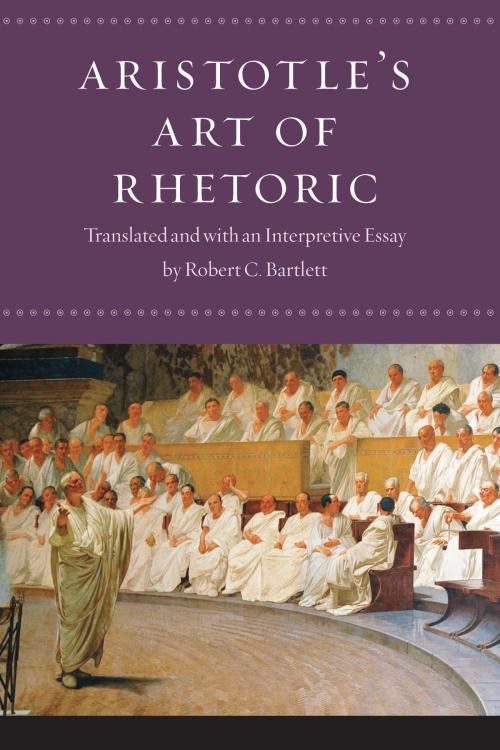Aristotle's "Art of Rhetoric"
Nonfiction, Religion & Spirituality, Philosophy, Ancient, Social & Cultural Studies, Political Science, Politics, History & Theory| Author: | Aristotle, Robert C. Bartlett | ISBN: | 9780226591766 |
| Publisher: | University of Chicago Press | Publication: | March 29, 2019 |
| Imprint: | University of Chicago Press | Language: | English |
| Author: | Aristotle, Robert C. Bartlett |
| ISBN: | 9780226591766 |
| Publisher: | University of Chicago Press |
| Publication: | March 29, 2019 |
| Imprint: | University of Chicago Press |
| Language: | English |
For more than two thousand years. Aristotle’s “Art of Rhetoric” has shaped thought on the theory and practice of rhetoric, the art of persuasive speech. In three sections, Aristotle discusses what rhetoric is, as well as the three kinds of rhetoric (deliberative, judicial, and epideictic), the three rhetorical modes of persuasion, and the diction, style, and necessary parts of a successful speech. Throughout, Aristotle defends rhetoric as an art and a crucial tool for deliberative politics while also recognizing its capacity to be misused by unscrupulous politicians to mislead or illegitimately persuade others.
Here Robert C. Bartlett offers a literal, yet easily readable, new translation of Aristotle’s “Art of Rhetoric,” one that takes into account important alternatives in the manuscript and is fully annotated to explain historical, literary, and other allusions. Bartlett’s translation is also accompanied by an outline of the argument of each book; copious indexes, including subjects, proper names, and literary citations; a glossary of key terms; and a substantial interpretive essay.
For more than two thousand years. Aristotle’s “Art of Rhetoric” has shaped thought on the theory and practice of rhetoric, the art of persuasive speech. In three sections, Aristotle discusses what rhetoric is, as well as the three kinds of rhetoric (deliberative, judicial, and epideictic), the three rhetorical modes of persuasion, and the diction, style, and necessary parts of a successful speech. Throughout, Aristotle defends rhetoric as an art and a crucial tool for deliberative politics while also recognizing its capacity to be misused by unscrupulous politicians to mislead or illegitimately persuade others.
Here Robert C. Bartlett offers a literal, yet easily readable, new translation of Aristotle’s “Art of Rhetoric,” one that takes into account important alternatives in the manuscript and is fully annotated to explain historical, literary, and other allusions. Bartlett’s translation is also accompanied by an outline of the argument of each book; copious indexes, including subjects, proper names, and literary citations; a glossary of key terms; and a substantial interpretive essay.















